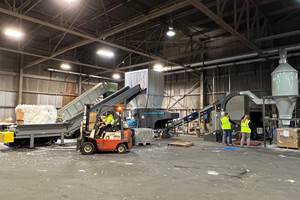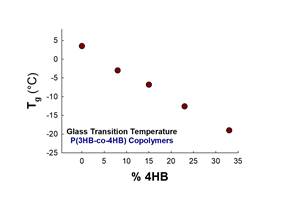The Extended Producer Responsibility Approach to Advancing Recycling
Some governments are turning to a hybrid strategy that combines elements of legislated targets, ecomodulation, and industrial collaboration to improve material lifecycle management.
Extended producer responsibility laws are conceived as tools to improve the management of target materials, thereby limiting negative impacts of their use. Rather than prescribe solutions, the laws generally set targets and leave the problem solving to an extended producer organizations (EPRO), an industry group incentivized to minimize the environmental burden of waste materials, but also given authority to determine the best way to do so.
Producers who prove they meet certain targets for sustainability, such as recycling rates, can sometimes be exempted from membership. Fees collected by an EPRO from its members are used to fund waste management, recycling programs, and educational outreach.
The strategy has gained some acceptance as an approach to improving the management of waste plastics and in particular as a way to address challenges facing the plastic recycling industry. Despite more than doubling from 2000-2018, the amount of plastic recycled in the U.S. remains relatively low compared to overall production.

Gaylord Convention Center in National Harbor, MD. Extended Producer Responsibility Organizations were a frequent topic of conversation at the Plastics Recycling Conference held there in March 2023.
Photo Credit: Matt Stonecash
Opportunities for Extended Producer Responsibility Organizations to Support and Enhance the Recycling System
- Consumer Behavior –A MRF manager recently related the story of going out to the landfill each day and watching helplessly as high value materials like PET bottles are dumped, simply because the user had neglected to put them in the bin. Education—partly disseminating knowledge but also building familiarity and trust—could help reduce the amount of material that never reaches the recycling system at all.
- Recycling Program Standardization- Almost 32% of U.S. households must drive their recycling to a drop off point and another 8.6% have no access to any recycling program. So, for tens of millions the recycling rate is zero because the opportunity is absent. Within the thousands of municipalities that do provide curbside collection, accepted resin codes and formats vary widely. EPROs can support recycling program expansion and standardization.
- Price Stability -Recyclers cannot respond to price changes as nimbly as other producers, in part because the supply of waste material is inelastic. A combination of price fluctuations, capital investments and long term supplier/customer relationships is endemic. Although encouraged by enthusiasm for recycled content and ambitious goals of brand owners, recyclers are cautious in their optimism about future demand, especially concerning materials other than food grade PET and natural HDPE. EPROs can pursue stabilization of demand, and improve supply availability via points 1,2, and 4.
- Supply Consistency and Quality- In municipal recycling programs, many of those doing the hard work of sorting single streams of post-consumer waste are doing so with decades-old technology. New robotics are available that sort rapidly and can be linked with feedback systems that provide real time information on exactly how well they are performing. EPROs can help MRFs obtain contemporary technology, thereby enhancing the value of material extracted for each member of the value chain.
Established and Future EPR Programs for Plastic Packaging
Effective EPR programs have been established in the European Union, Japan, and South Korea for decades. More recent laws passed in parts of Canada and Australia, as well as a handful of U.S. states, have established EPR programs. Similar legislation has also been introduced in Connecticut, Hawaii, Illinois, Massachusetts, Maryland, Minnesota, New Jersey, New York, Rhode Island, Tennessee, Vermont, and Washington.
The legislative future of these measures is uncertain, but with EPR already adopted by California, and other important markets for packaged goods, various manifestations of the concept are likely to play a growing role in the future management of plastic packaging material lifecycles.
Related Content
Breaking News From NPE2024
Here is a firsthand report of news in injection molding, extrusion, blow molding and recycling not previously covered.
Read MorePurpose-Built System Enhances Capacity and Flexibility for Recycler
A Boston recycler invested in a turnkey shredding, granulation and elutriation system to expand its plastics reclaim business.
Read MoreNPE2024 Wrap-Up: Sustainability Dominates Show Floor News
Across all process types, sustainability was a big theme at NPE2024. But there was plenty to see in automation and artificial intelligence as well.
Read MoreFilm Extrusion: Boost Mechanical Properties and Rate of Composting by Blending Amorphous PHA into PLA
A unique amorphous PHA has been shown to enhance the mechanical performance and accelerate the biodegradation of other compostable polymers PLA in blown film.
Read MoreRead Next
People 4.0 – How to Get Buy-In from Your Staff for Industry 4.0 Systems
Implementing a production monitoring system as the foundation of a ‘smart factory’ is about integrating people with new technology as much as it is about integrating machines and computers. Here are tips from a company that has gone through the process.
Read MoreSee Recyclers Close the Loop on Trade Show Production Scrap at NPE2024
A collaboration between show organizer PLASTICS, recycler CPR and size reduction experts WEIMA and Conair recovered and recycled all production scrap at NPE2024.
Read More
























